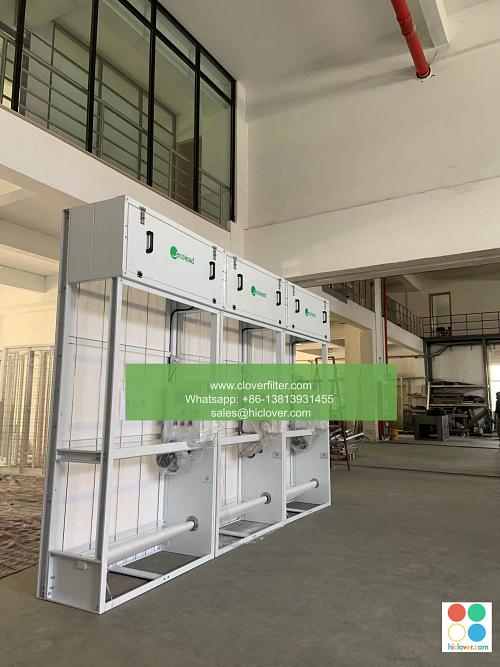MIT’s Approach to Maintaining Clean Labs with Automatic Roll Air Filters

The Massachusetts Institute of Technology (MIT) is renowned for its cutting-edge research and innovative solutions. One crucial aspect of maintaining a safe and healthy environment in its laboratories is the effective management of airborne contaminants. To address this challenge, MIT has implemented a proactive approach using automatic roll air filters as a key component of its indoor air quality (IAQ) management strategy. This article explores MIT’s approach to maintaining clean labs, highlighting the benefits and applications of automatic roll air filtration systems in various fields, including laboratory settings, research facilities, and industrial manufacturing.
Importance of Clean Labs
Clean labs are essential for ensuring the accuracy and reliability of research results, as well as the safety and well-being of researchers and lab personnel. Airborne contaminants, such as dust, particulate matter, and volatile organic compounds (VOCs), can compromise the integrity of experiments and pose health risks to individuals working in the lab. Effective air filtration systems are critical in maintaining a clean and safe laboratory environment.
Automatic Roll Air Filters: A Key Solution
MIT has adopted automatic roll air filters as a key solution for maintaining clean labs. These filters use a roll-to-roll design, where a continuous roll of filter media is unwound and rewound as it becomes saturated with contaminants. This automatic filtration system provides several benefits, including:
* Improved indoor air quality (IAQ): By capturing airborne contaminants, automatic roll air filters help maintain a clean and healthy environment in the lab.
* Increased filter lifespan: The roll-to-roll design allows for a longer filter lifespan, reducing the need for frequent filter replacements and minimizing waste.
* Enhanced flexibility: Automatic roll air filters can be easily integrated into existing heating, ventilation, and air conditioning (HVAC) systems, making them a versatile solution for various laboratory settings.
Applications in Laboratory Settings
Automatic roll air filters have various applications in laboratory settings, including:
* Research laboratories: These filters are ideal for research labs, where sensitive experiments and equipment require a clean and controlled environment.
* Biosafety labs: Automatic roll air filters are essential in biosafety labs, where the risk of airborne contamination is high and the need for strict infection control measures is critical.
* Chemical laboratories: These filters are suitable for chemical labs, where the presence of VOCs and other airborne contaminants can pose health risks to lab personnel.
Industrial Manufacturing Applications
Automatic roll air filters also have applications in industrial manufacturing, including:
* Pharmaceutical manufacturing: These filters are used in pharmaceutical manufacturing facilities to maintain a clean environment and prevent contamination of products.
* Food processing: Automatic roll air filters are used in food processing facilities to prevent airborne contamination and ensure the quality and safety of food products.
* Electronic manufacturing: These filters are used in electronic manufacturing facilities to maintain a clean environment and prevent damage to sensitive equipment.
Conclusion
MIT’s approach to maintaining clean labs using automatic roll air filters demonstrates the importance of effective air filtration systems in laboratory settings and industrial manufacturing. By adopting this proactive approach, organizations can ensure a safe and healthy environment, maintain the integrity of research results, and prevent the risk of airborne contamination. As the demand for clean and controlled environments continues to grow, the use of automatic roll air filters is likely to become increasingly widespread in various fields, including research facilities, industrial manufacturing, and laboratory settings.

